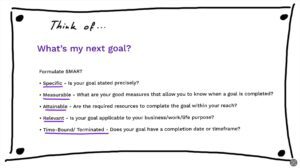4 Must-Know Tips for High School Parents: Guiding Your Teen’s Success
Parents, ever wonder how to help your teen with academic challenges? You might think school teaches study skills for higher academic journeys. As a former high school teacher, I assure you schools can’t fully prepare for what’s beyond the finish line. Engage in class and study actively; very few master this challenge without extra help. The good news? We’re in this together. Just by being aware of a handful of principles, you’ll see a transformative shift in your teen’s journey. Our compass? More than grades—it’s a roadmap with expectations, growth, support, and commitment to lifelong learning. Ready for a future where your teen excels and thrives holistically?
Join me to learn techniques from academic coaching, preparing high school students for their academic future.
-
Promoting Independence: A Parent’s Playbook
Didn’t I just tell you that as a parent it’s crucial to support your student at home? Yes! However, even though your assistance might be important, the goal should be to teach independence.
How do you do it? Your child needs to develop a sense of ownership over their educational journey. Depending on what age they’re in, their main duties might range widely. Starting from homework assignments, project works, extracurricular activities, test preparation for open answers, closed answers (multiple choice)… each task demands a unique approach. It’s vital to recognize what they need to master because your preparation needs to depend on it. Overall, though, the objective for our teens is to boost independence.
A practical strategy for parents to improve independence:
Start by engaging your teen in crafting their study schedule. Discuss the significance of effective time management and invite them to contribute ideas. Equip them with a template or tool to plan study sessions, assignments, and commitments (calendar, study apps, white board in the kitchen so everyone can see)… Actively involving them instills autonomy and is crucial to start early on in life. Consequently it will foster a keen sense of responsibility for their academic tasks.
If you’re eager to explore more strategies for enhancing your teen’s time and organization skills, check out my free ebook.

2. Encouraging Goal Setting: The Path to Success
You’ve probably heard of S.M.A.R.T goal setting—a fantastic method for teaching your teen. But, let’s take a step back and start smaller. Begin by emphasizing the benefits of goal-setting; bring it up in everyday conversations, perhaps during dinner. Encourage your teen to identify both short-term and long-term academic goals, fostering a sense of purpose and motivation.

Practical Example for a Conversation Between Parents and Teens:
Sit down with your teen to explore their academic aspirations. Assist them in defining specific and measurable goals—both short-term (like aiming for a certain grade in the next test) and long-term (such as pursuing a specific field in higher education). Break down these larger goals into smaller, actionable steps. Writing them down on a sheet of paper might help make these steps more tangible. Additionally, hanging them above their desk or somewhere visible is highly motivating.
Regularly revisit and revise these goals together with your child, and don’t forget to celebrate achievements or adjust strategies as needed. This collaborative goal-setting process not only reinforces their sense of purpose but also cultivates lasting motivation. Good job!

3. Time Management Strategies for Parents and Teens
Pomodoro Technique, Spacing Effect, or Pareto’s Principle—are effective time and organization strategies, but let’s start smaller! Depending on your child’s workload, their organization needs differ. Begin by teaching your teen about creating study schedules, prioritizing tasks, and balancing academic commitments with extracurricular activities. Have them write it all out and assist them in adjusting priorities if needed.
Practical Example for Weekly Planning:
Introduce the concept of a weekly planner to your teen. Collaborate to identify all academic and extracurricular commitments for the upcoming week. Allocate specific time blocks for studying, attending classes, and participating in extracurricular activities. Prioritize tasks based on deadlines and importance.
You may categorize them with:
-
A (have to do)
-
B (should do)
-
C (nice to do)
-
… and sub-prioritize them by adding numbers, such as A1, A2, B1, B2, B3, C1… (check out my free ebook for a more detailed explanation)

4. How Parents can improve their Teens’ Mental Health
All the academic skills in the world won’t help your child if they don’t want to learn them. A positive attitude towards school and (life-long) learning is crucial for academic and personal success. Let’s shine a light on the paramount importance of prioritizing mental health and fostering open communication between parents and teens. Understanding the basics is key to cultivating a positive mindset in your teen and maintaining a healthy relationship with them. This involves active listening, avoiding judgment, and providing emotional support.

Practical Example on Active Listening for Parents:
Create a safe space for open conversations about mental health. Regularly check in with your teen, asking open-ended questions about their experiences and emotions. Practice active listening without immediately offering solutions. Paraphrase what they just expressed in your words. Their answer should be a confirming “yes,” indicating they feel heard and understood. Then, delve deeper into their thoughts with questions designed to lead to more affirmations. (Learn about active listening and other mental health strategies for parents and teens in this free masterclass.) Validate their feelings and concerns, emphasizing that it’s okay not to be okay. Encourage them to express their needs for support and collaborate on coping strategies. By fostering a non-judgmental and supportive environment, parents contribute to their teen’s overall well-being and create a foundation for effective self-advocacy.
You may also learn more in this video!
Conclusion: How to help a teenager struggling in school
In nurturing your teen’s educational journey, effective communication stands as the cornerstone. As parents, striking a delicate balance between support and independence is crucial. Knowing when to guide and when to let your teen take the reins nurtures their growth and resilience.
Implementing these methods to aid your teen in home study equips them with the enduring gift of self-advocacy skills. Teach them to seek help, communicate with teachers, and take charge of their educational journey.
Remember that the essence lies not only in academic mastery but in holistic growth. Thank you, parents, for shaping not only academic success but also fostering resilience, independence, and a lifelong love for learning.
Hope that helped! 😊 By the way, I’ve compiled these and other academic strategies in easy-to-access online courses tailored for schools and students transitioning into higher education! Give them a try!


FOLLOW me on
🔴 Youtube
✍️ Read more BLOG posts!
…for more academic coaching & study tips!
P.S.:
More support for students
If you are looking for more academic support, I can offer you access to the academic coaching course for students and teachers. Check out this offer for schools if you want to find out how to apply proven learning strategies, techniques to boost motivation and valuable test preparation skills.
Support for parents: Teens’ mental health

If you are looking for support regarding your child‘s mental health and want to improve your relationship with them, I want to suggest one of my free resources: the DIY Coaching Kit
By learning more about proven coaching strategies of the parent-child dynamics and the psychology behind it, you‘ll be able to act like a life coach for your own child without them even knowing 😉
